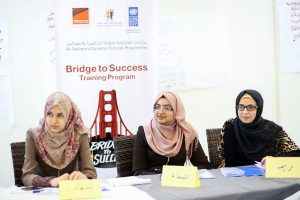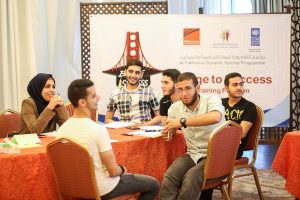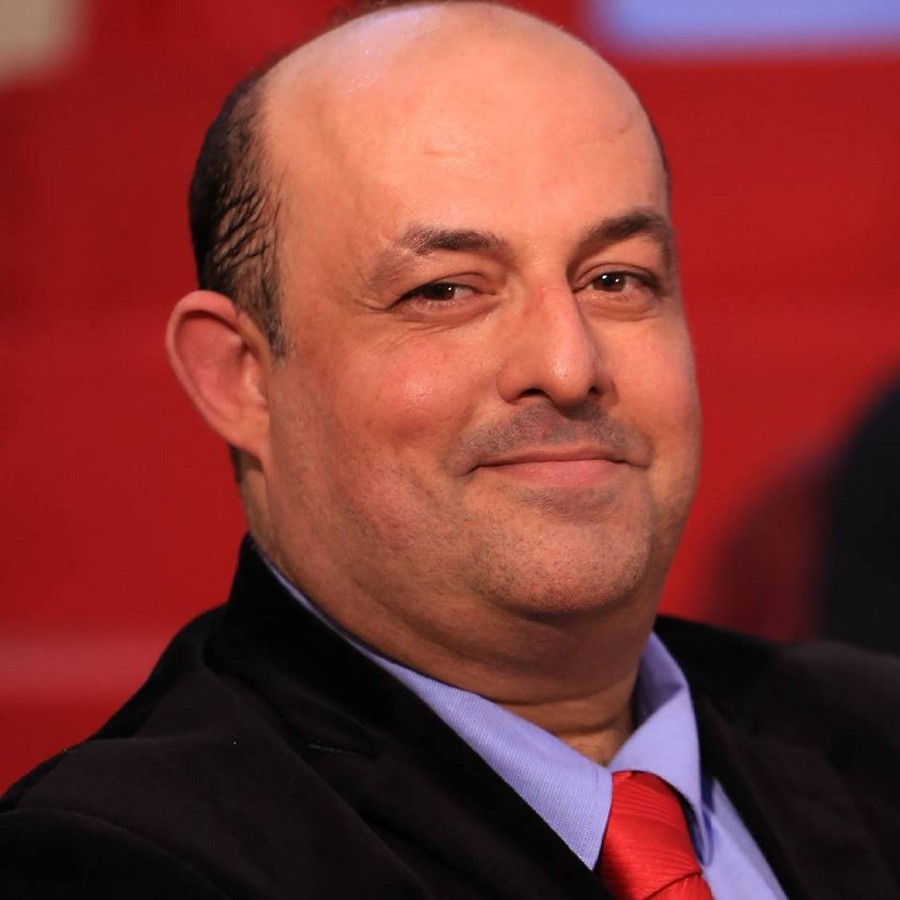Access to quality education to foster development is a strategic priority for UNDP/PAPP and in line with the Sustainable Development Goals (SDGs). Al Fakhoora – Dynamic Futures Programme was established in 2009 to cater mainly to undergraduate students in the Gaza Strip. Its aim is to enhance student services through an integrated approach to quality higher education, striving to facilitate access, participation, and social inclusion, particularly among marginalized and vulnerable communities.
Dynamic Futures was inspired by the observed need to offer preliminary training sessions that would help promote the smooth transition of freshmen students as they move from school to the educational environment of a university. Freshmen enrollees in universities face challenges while adapting to a university-level educational system due to the lack of preparation courses for students that would smoothen the enrollment process and help them better adapt to the new environment. This is evident by a general drop in students’ grade point average in comparison to their secondary school grades. Schools largely still utilize a spoon-feeding approach, whereas universities expect more self-motivation and encourage creativity and independent thinking.
Many new students, however, lack self-direction and are not used to such an approach. Given that there are no formal programs offered at universities to enable students to meet the challenges associated with the dramatic change in the educational environment, Dynamic Futures responds to this gap. Within the first days of enrollment in the program, new domestic undergraduate students receive the Bridge to Success training that helps them gain the skills that will be crucial for their academic success.

This training is part of a larger package of student services offered to enable a generation of marginalized youth to access quality education that will lead them and their families towards cohesion and prosperity. It focuses on human capital investment in line with the SDGs in order to achieve inclusive and equitable quality education and offer leadership development opportunities, as these are considered among the most powerful and proven vehicles for sustainable development for vulnerable populations – including persons with disabilities, refugees, and the poor in marginalized areas – leading to relevant and effective learning outcomes and eliminating gender and wealth disparities. Dynamic Futures gives access to gender-responsive, equitable, quality education to a diverse group of students.
Dynamic Futures offers training in key learning areas such as academic writing skills, strategies for critical and effective academic reading and writing, sources for learning and access to information, presentation skills and effective communication skills, time management, critical thinking, and research methods.
Dynamic Futures is multi-faceted, with a number of interrelated components that constitute the structure of the program: quality education through domestic and international undergraduate scholarships, international postgraduate scholarships, and empowerment programs; student affairs, including comprehensive support services to contribute to students’ success and well-being through Al Fakhoora House – Student Services Unit and Al Fakhoora Alumni; leadership development, which includes leadership training and opportunities, community services, and opportunities for alumni to contribute as mentors and stay connected to the program; and finally economic empowerment, which includes work to bridge education, empowerment activities and career counseling, on-the-job training opportunities based on the student’s needs, internships at local businesses for Al Fakhoora alumni, and linkages with entrepreneurship activities.

The business benefits to investment in education do not need to be proven by academic studies. They range from improving brand leadership to developing the capacities of future employees and building a more diverse employee pipeline. Dynamic Futures addresses the mismatch between the skills of the available workforce and those required to fill job vacancies, which is a key problem in many sectors.
Within the Gaza context, investment with young people removes hinders of development with remodeling epistemics, stereotypes of traditional workspaces, knowledge investment, and access to higher education, is what matters to create a sustainable cadre that contributes to the building of the State of Palestine and leads to positive change in the community.
Based on an education-for-development approach, the Dynamic Futures model thus institutionalizes integrated mechanisms to build a cadre of educated and trained leaders who are civic-minded, intellectually able, and professionally skilled to become the community, business, and national leaders of the future. This model was established jointly between UNDP and Al Fakhoora, a program of the Education Above All Foundation, in order to address the livelihood and income challenges that hinder students’ access to higher education. The program is designed to increase the enrollment of students from disadvantaged socioeconomic backgrounds.
Evolved over nine years, Dynamic Futures has produced outstanding results and impacted the lives of Palestinian youth, strengthening their interpersonal skills and increasing employment opportunities.
To date, Dynamic Futures has targeted 970 students (940 undergraduates and 30 graduate students), of which 68.7 percent are refugees, with a balanced male/female representation. Participants engaged in a variety of life-skill training sessions and volunteering activities, reporting that they felt an increase in self-confidence as well as a strong sense of pride. Further, participants reported that they had developed skills in communicating with, and leading, others. Students also achieved 188,417 engagement hours of service in local communities and participation in leadership trainings; and the families of 224 students have been supported through income-generating projects.


